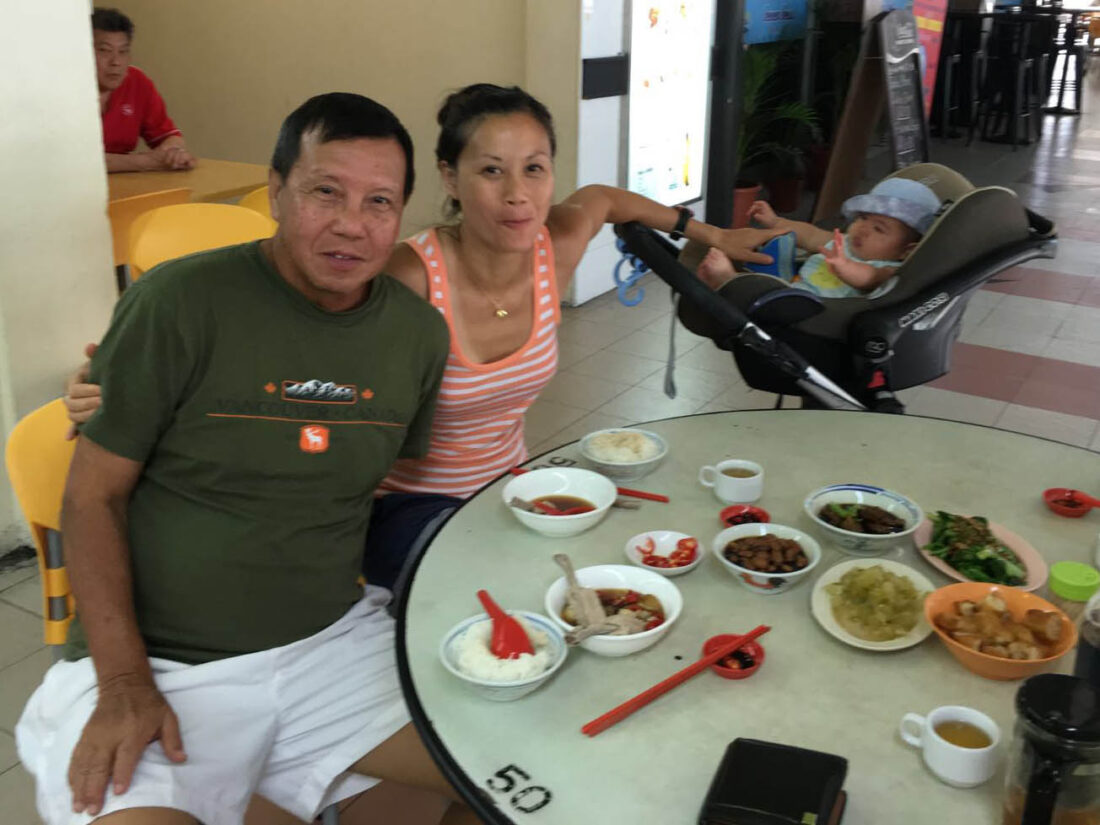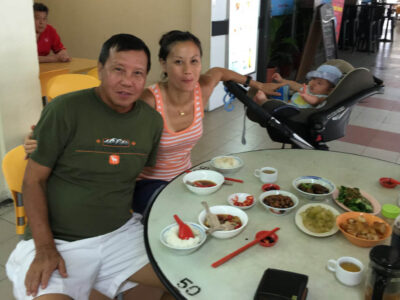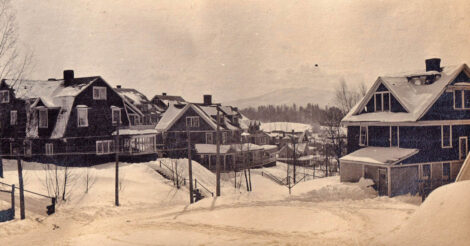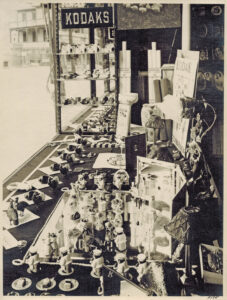A tradition of gratitude

Jessica Lim rediscovering bak kut teh with her dad and daughter. (Provided photo — Jessica Lim)
My favourite holiday tradition features oolong tea, a peppery pork rib soup and my grandfather.
–
Bak kut teh
–
Bak kut teh (pronounced back koot tay) is a Southeast Asian pork rib soup served with rice and an array of sauces. The broth is seasoned with star anise, clover, cinnamon, copious garlic and white pepper. Oolong tea is drunk alongside the dish to balance the flavor. Believe me that it is delicious, made more delicious because I ate it with aunts and uncles, cousins, my mom and dad, my sister and my grandparents. When I was a child, my family ate bak kut teh with our relatives every time we travelled to Singapore over the holiday season.
My favourite part of the meal was the tea ceremony. The Chinese tea ceremony dates to the Tang Dynasty (618-907 AD) and evolved over centuries to become an essential part of Chinese culture. Today, the ceremony involves customs and rituals that embody a blend of mindfulness, artistry and harmony. Although most practiced at weddings, the tea ceremony is also celebrated at everyday gatherings to mark togetherness and meaningful connections. Every bak kut teh meal with my family began with Ah Kong shepherding us through the tea ceremony.
–
Tea with Ah Kong
–
I am 5, I am 7, I am 9. The teapot and teacups are small by every stretch of the imagination but rendered doll-like in my grandfather’s large hands. The teacups are placed in a ceramic bowl for the first step in the ceremony. Ah Kong pours a small pot of boiled water on top of the teacups to purify and warm them. One of the aunties sucks her teeth as a splash of hot water hits his hand.
“Careful,” someone says. Ah Kong replies with a gentle nod.
Next, Ah Kong rinses the teapot and prepares it for the tea. His manner is unhurried. Everyone is present; we are hushed, expectant, fascinated. I watch his hands move like two birds in flight — synchronized, graceful, precise. He adds a pinch of tea leaves to the pot, rinses it a second time with hot water, pours out the weak tea through the spout. He repeats the rinsing again, and again. No one speaks as grandfather works. Finally, just before the grandchildren burst with impatience and thirst, Ah Kong adds the rest of the tea leaves, pours hot water into the pot one last time and lets the tea brew.
I cherished the tea ceremony because it was a shared moment that bridged me to loved ones and lives beyond my own. The ritual connected me to my grandfather, his much younger self migrating from south China to Singapore, his work in the shipping yard, his marriage, his five children, my dad. The steeping tea leaves paved a path from me to my father and mother, to their childhood in post-war Singapore, the days they spent among mango trees and crammed in zinc-roof homes, the decades of life before my sister and I were a dream in their hearts.
A tradition is the ultimate presencing. It collapses the gap between now and then, here and there, me and the people I owe my life to. The tea is poured. I drink, and I’m part of this world as it is, as it was, as it will be. I drink, and I celebrate the people who made this moment possible, who prepared a place for me to belong. I drink, I am warmed by love and I am grateful.
–
To remember gratitude
–
We stopped going for bak kut teh after Ah Kong died. I missed it for many years but found my way back to it when I had my daughter C. A few months after she was born, I took her to visit my dad in Singapore. I arrived exhausted from the trip and instinctively asked to eat bak kut teh. My dad raised his eyebrows, knowing. He replied with a gentle nod. We went –my dad, me and C.
Now it was my dad’s turn to perform the tea ceremony. It was my turn to suck my teeth when hot water splashed on him. It was C’s turn to watch her Ah Kong, to hush, to expect and to be fascinated.
I want to make time for our traditions. If I forget, become apathetic, misplace my values, I hope C will remind me of the things that matter to us, of Christmas turkey and New Year’s hot pot, of tea and pork rib soup and a dance of hands. I want her to remember that our traditions ground us in something larger than ourselves, in a world of love and shared memories and gratitude.
This December, I am returning to Singapore with C. My dad is expecting us. I will remind him to brew tea.
Prompt for next time: What are your favorite holiday traditions?




